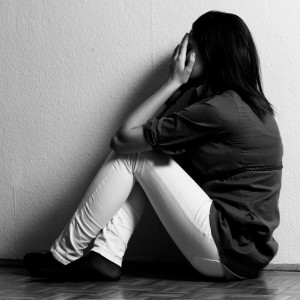Shame: When Is It Toxic?
 It would be impossible to go through life without at least occasionally feeling shame. It’s a basic human emotion, whether we’re remembering something we did in the past or feeling as though we are inadequate in the present. But for some people, shame begins to permeate so completely, it impacts self-esteem and affects relationships with others.
It would be impossible to go through life without at least occasionally feeling shame. It’s a basic human emotion, whether we’re remembering something we did in the past or feeling as though we are inadequate in the present. But for some people, shame begins to permeate so completely, it impacts self-esteem and affects relationships with others.
What Is Shame?
Children are often taught to feel shame from a young age by parents who want them to monitor their own behavior in public. A child who is acting out in a grocery store, for instance, may be told to take a long, hard look at how his behavior is being perceived by others. As that child grows into adulthood, concern about public perception is often heightened, especially during the insecurity of adolescence.
For children of parents who are overly critical, the shame mechanism can become twisted. Feeling the constant disapproval of one or both parents may lead a child to feel inadequate, blaming him or herself for that parent’s behaviors. That hypercriticism can often be passed on from generation to generation, prompting the shamed child to become an overly critical parent toward his or her own children.
Shame and Self-Esteem
While the emotion of guilt can be directed toward a particular action, shame is usually personalized. It is tied more closely into who a person is than guilt. A person may feel unworthy or “less than” others, leading to a lack of motivation to improve things. For many, this feeling can be situational or related to a specific time in life, but for some, the feeling of shame persists throughout life.
Often those suffering from this sort of toxic shame have self-esteem issues. Unfortunately, these issues are often so deeply ingrained in how that person thinks, they can only be remedied through years of therapy and self-reflection. A therapist will work with a toxic shame sufferer to build that self-esteem. It is important that a patient begin to form his own perceptions of who he is, rather than relying on the opinions of others that have formed his identity for so long.
When Shame Escalates
Some experts have theorized that hidden shame can actually cause depression, with the shame/anger spiral either causing or contributing to symptoms of the disease. In fact, one psychiatrist who worked directly with prisoners marveled at the power shame can have over a person, potentially even leading a small number of sufferers to become either homicidal or suicidal.
It is often while being treated for depression that counselors are able to unearth the underlying shame that has haunted sufferers for many years. While treating the depression with medications may help alleviate the chemical imbalances thought to cause clinical depression in many cases, only by helping patients understand the shame that harms their thinking can they begin the process of healing.